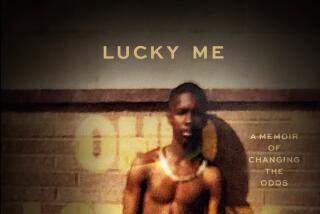How to clean the yellow jersey
- Share via
THE TOUR DE FRANCE wants its yellow jersey back -- specifically the one Danish cyclist Bjarne Riis took home for winning the race in 1996.
Riis and six others -- all among cycling’s most successful competitors -- last week revealed that they used performance-enhancing drugs while riding for the Telekom team in the 1990s.
The admissions came in the wake of leaks from a book by Jef d’Hont, a former support worker for the team. D’Hont didn’t implicate riders, but he did name two doctors who gave them EPO, which increases the number of oxygen-carrying red blood cells. The doctors denied the allegation and vowed legal action against D’Hont. It was then that Bert Dietz, a stage winner at the 1995 Tour of Spain, came forward. Others followed -- each of his own volition, without implicating others -- culminating in Riis’ bombshell Friday.
Anyone who believes that Riis didn’t use EPO on his way to winning the Tour de France also probably believes that the moon is edible and that large waterfowl deliver babies. But his regret-filled confession was a stunner -- not the least because it came at a news conference, not under interrogation.
Meanwhile, in Malibu, 2006 Tour de France victor Floyd Landis has been fighting to retain his title. Landis tested positive for synthetic testosterone during the race but has firmly maintained his innocence. His defense centers on the incompetence of the French laboratory that provided the analysis. A review of the expert testimony reveals serious questions about the lab’s staff, equipment and even computer software. One suspects that this lab might find synthetic testosterone in the urine of a cat.
But as Landis’ case shows, cycling’s anti-doping system pursues the athlete as the root of the problem. In fact, if riders are the users, it’s the team managers and doctors who are the corner dealers.
Each of the riders for Telekom -- now known as T-Mobile -- who came forward said he felt coerced to take the drugs and to keep quiet. This should give us all pause. These athletes, mostly now retired, knew their jobs were on the line if they weren’t fast enough, if they refused the doctors’ “help,” if they didn’t go along. They felt extorted.
Today, three professional teams -- CSC, T-Mobile and Slipstream Sports -- run the most stringent in-house testing programs. All are managed by former riders who have said they don’t want their athletes to face the decisions they confronted.
So cycling is at a crossroads. These initial admissions could finally turn the tide against the omerta -- the sport’s code of silence. But Tour de France Director Christian Prudhomme has called for anyone who admits doping to be banned. Confessing in exchange for unemployment isn’t much of an incentive.
What cycling needs now is its own “truth and reconciliation commission” -- a way for riders to confess in return for amnesty. This is the only way to uncover the full depth and range of drug use in the sport. As long as working professionals fear losing their jobs, concerns for home and family will trump truth. A system of punishment-free confession would give cycling’s governing body, the Union Cycliste Internationale, an unprecedented opportunity to learn what doping occurred, the physicians involved and, hopefully, a way to prevent it in the future.
Rewriting the record books will be unsatisfying, if not impossible. Should someone else be awarded Riis’ 1996 Tour de France win? Telekom teammate Jan Ullrich finished second -- but D’Hont revealed he personally injected Ullrich with EPO. Third place went to Richard Virenque of Festina, the team that was ejected from the 1998 Tour for suspected EPO use; he later confessed in court. Fourth place? His Festina teammate Laurent Dufaux. Union Cycliste President Pat McQuaid suggests that rather than try to find a clean winner, the 1996 edition be declared to have “no winner.”
And then what? What are the chances that Lance Armstrong won the first clean Tour in 1999 following several obviously tainted years? After all, three of his former support riders have been caught, admitted or implicated in EPO use. A fourth has hinted as much about himself. If Landis’ positive test is upheld, he will be the fifth U.S. Postal/Discovery rider implicated in drug use.
But the history books are a smaller concern than the here and now. Fans are disgusted and corporate team sponsors are fleeing. Speculation is that T-Mobile and CSC (where Riis is now team director) are days from announcing their departure from the sport. This would be an unfortunate turn of events. To be identified as one of the sponsors that helped rehabilitate the sport could pay untold dividends.
Cycling’s best opportunity to end doping is to allow, and encourage, riders to stand up, tell the truth and fear no reprisal. The Tour de France’s Prudhomme said that Riis had “soiled the yellow jersey.” Maybe he did. But with his confession, he’s taken the most important step toward cleaning up cycling.
More to Read
Go beyond the scoreboard
Get the latest on L.A.'s teams in the daily Sports Report newsletter.
You may occasionally receive promotional content from the Los Angeles Times.









